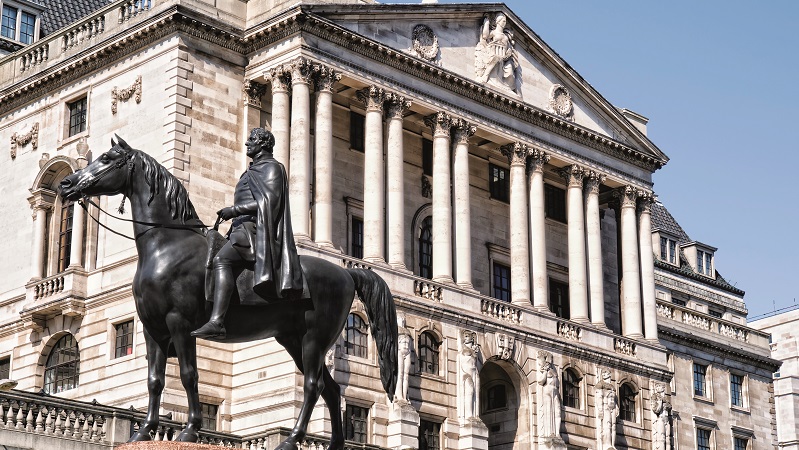The Bank of England could raise rates 25 basis points at each meeting over the coming months as UK inflation comes in higher than expected for January.
The consumer price index edged up to 5.5% from 5.4% in December with a lack of post-Christmas discounts on clothing, footwear, furniture and household goods feeding into the figures. And there is more pressure on households on the horizon with Ofgem announcing the energy price cap will increase 54% from April.
It is the highest reading since March 1992 when the figure hit 7.1%.
‘The Bank of England faces a difficult balancing act’
JP Morgan Asset Management global market strategist Ambrose Crofton said higher and more persistent inflation has caught central banks on the back foot and opened the door to more interest rate hikes this year.
“At its February meeting when the Bank of England decided to raise interest rates by 25 basis points, it was debated whether or not to raise them by 50 basis points,” Crofton said. At its meeting this month, five members of the monetary policy committee voted to raise rates 0.25%, while the minority sought to raise them 0.5%.
“The Bank of England faces a difficult balancing act. It needs to assert its credibility and commitment to bringing down inflation. At the same time it doesn’t want to hamper the nascent recovery given all the work done to support the economy in the last two years. For now we think that means tightening 25bp at each meeting in the coming months though some members may feel inclined towards a faster pace as we saw at the February meeting.”
‘The benchmark 10-year gilt isn’t squealing that inflation is a sustained problem’
The EY Item Club expects inflation to rise to over 7% in April and that it could remain above 5% until late summer, depending on the trajectory of oil and gas prices.
It then expects inflation to fall significantly during 2023, as consumer demand shifts to services and supply bottlenecks are resolved, and commodity prices to fall back. That matches with current BoE forecasting that anticipates CPI will dip to 2% in 2024.
But AJ Bell head of investment analysis Laith Khalaf offers a word of caution. “Inflation is extremely unpredictable, so it’s prudent to acknowledge that it might possibly tail off, though the Bank’s forecasting capabilities haven’t exactly won any awards in recent times.” A Russian invasion of Ukraine would likely send gas prices even higher, he points to as a potential risk.
Nevertheless, market pricing appears to side with the view taken by the BoE.
“There has been a sell-off in the bond market, but at a yield of 1.6%, the benchmark 10-year gilt isn’t squealing that inflation is a sustained problem,” Khalaf said. “Likewise, there has been a rotation away from some of the higher valued areas of the market, but hardly the bloodbath one might have anticipated if inflationary concerns had really bedded in for the long term.”











